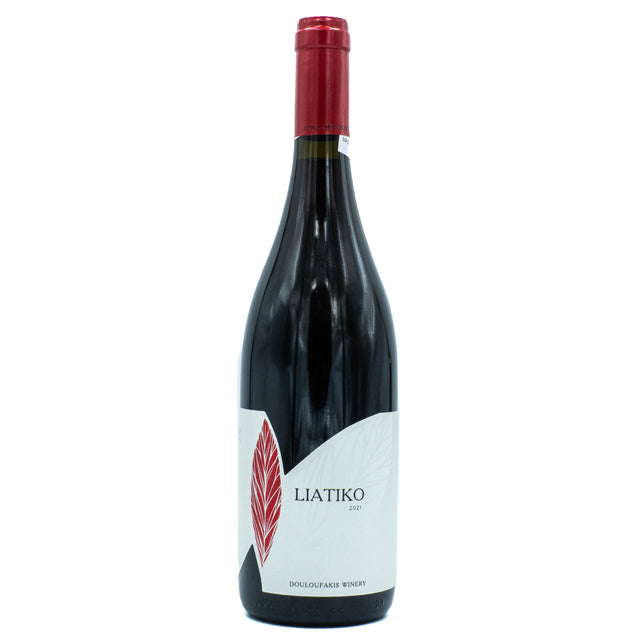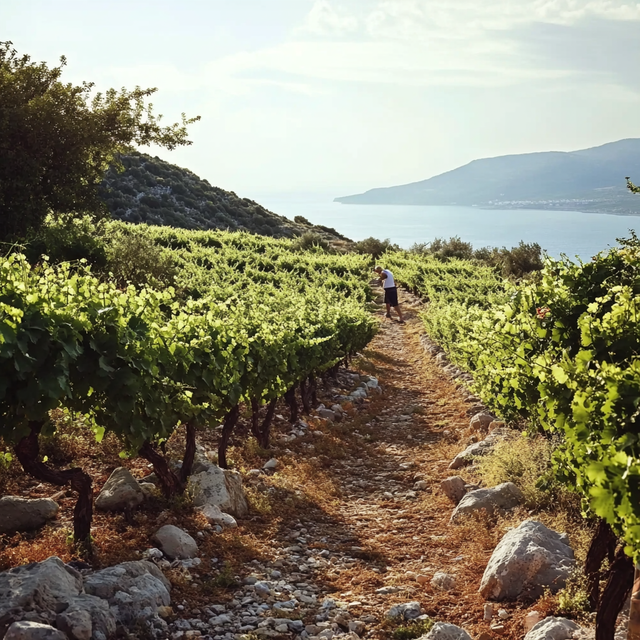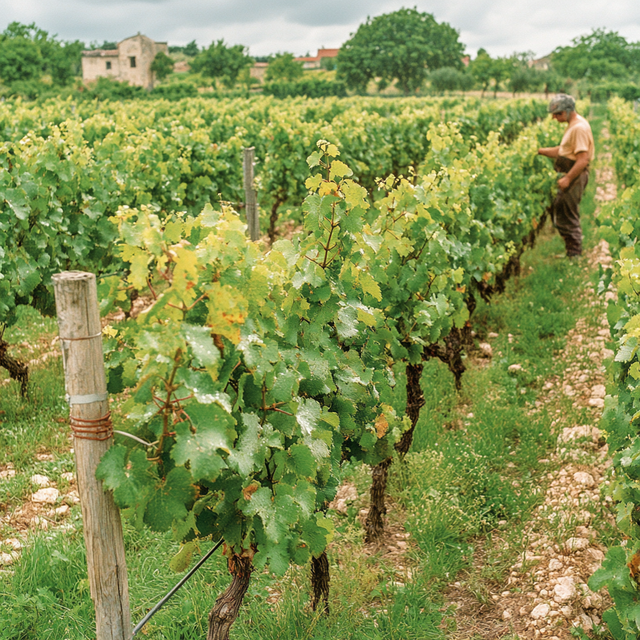Greece – Islands includes nearly twenty winegrowing islands among the country’s 87 inhabited isles, each shaped by the Aegean’s sun, wind, and sea. Santorini’s volcanic soils, Crete’s mountainous terrain, and Cephalonia’s limestone-rich slopes are among the most influential, producing mineral-driven whites like Assyrtiko and Robola, as well as fresh, structured reds from native grapes such as Liatiko and Mavrodaphne. Across the islands, poor rocky soils, elevation, and constant maritime breezes give rise to wines of brightness, salinity, and distinctive character.
Greece - Islands
Practicing Organic vineyard farming involves growing grapes using organic methods—avoiding synthetic fertilizers, herbicides, pesticides, and fungicides—but without formal certification. Wineries adopting this approach prioritize environmental health, soil vitality, and biodiversity, using natural practices such as composting, cover cropping, and manual pest control. Many small wineries opt for practicing organic methods rather than pursuing official organic certification, primarily due to the significant cost, paperwork, and time commitment involved in certification processes. As a result, practicing organic is a popular choice among boutique and artisanal producers who remain committed to sustainable agriculture while managing budgetary constraints.




